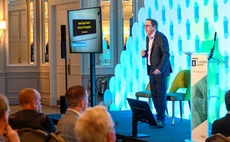State of the IT Market 2011 report reveals what today's CIOs are looking for in aspiring IT leaders
A wholesale shift in skills required for the IT profession is taking place, according to recruitment consultancy Modis International in a report released today. The report, called State of the I...
To continue reading this article...
Join Computing
- Unlimited access to real-time news, analysis and opinion from the technology industry
- Receive important and breaking news in our daily newsletter
- Be the first to hear about our events and awards programmes
- Join live member only interviews with IT leaders at the ‘IT Lounge’; your chance to ask your burning tech questions and have them answered
- Access to the Computing Delta hub providing market intelligence and research
- Receive our members-only newsletter with exclusive opinion pieces from senior IT Leaders






















